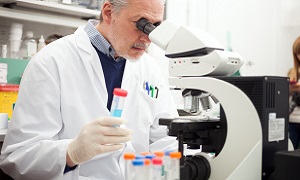Cirrhosis
Cirrhosis is a late stage of the fibrosis or scarring of the liver. Many liver diseases or conditions like chronic alcoholism or hepatitis result in cirrhosis. Whenever any disease or excess consumption of alcohol damages your liver, it tries to undergo repair. The scar tissue forms during this process. With the advancement of cirrhosis, more scar tissue develops so that the liver functioning becomes difficult. This condition is decompensated cirrhosis. Advanced cirrhosis may turn out to be life-threatening.
Causes of Cirrhosis
A wide range of conditions and diseases cause cirrhosis by damaging the liver. Some of the causes enumerated are:
- Hemochromatosis or iron buildup in the body
- Alpha-1 antitrypsin deficiency
- Chronic alcohol abuse
- Inherited sugar metabolism disorders like glycogen storage disease or galactosemia
- Nonalcoholic fatty liver disease accumulates fat in the liver
- Chronic viral hepatitis like hepatitis B, C, and D
- Cystic fibrosis
- Biliary atresia in which there is a poor formation of bile ducts
- Infections like brucellosis or syphilis
- Primary biliary cirrhosis or destruction of the bile ducts
- Alagille syndrome that is a genetic digestive disorder
- Primary sclerosing cholangitis in which there is scarring and hardening of the bile ducts
- Autoimmune hepatitis where the body’s immune system causes liver disease.
- Medications like isoniazid and methotrexate
Symptoms of Cirrhosis
Cirrhosis does not show signs or symptoms until extensive liver damage. The signs include:
- Yellow discoloration in the eyes and the skin
- Swelling called edema in the legs, ankles, and feet
- Easy bruising and bleeding
- Spiderlike blood vessels on your skin
- Nausea
- Fatigue
- Itchy skin
- Redness in the palms of the hands
- Loss of appetite
- Weight loss
- Absence of menstrual cycle in women, not related to menopause
- Gynecomastia (breast enlargement) or testicular atrophy in men
- Fluid accumulation in the abdomen called ascites
- Drowsiness, confusion & slurred speech
Diagnosis of Cirrhosis
People don’t experience any symptoms in the early stages of liver cirrhosis. Most commonly, doctors detect liver cirrhosis through checkup or routine blood tests. They carry out a combination of imaging tests and laboratory tests to confirm the diagnosis.
Imaging Tests

Laboratory Tests
Your doctor may recommend some blood tests to you to check for the signs of malfunctioning in the liver like excess bilirubin. He or she may also check for specific enzymes indicating liver damage. The doctor will also check for creatinine in your blood as it helps to assess kidney function. You might also need to undergo screening for the hepatitis virus.
The doctor may also check your International Normalized Ratio (INR) to test the clotting ability of your blood. The blood test results will help your doctor to diagnose the underlying causes of cirrhosis of the liver. It also reveals the severity of the cirrhosis of the liver.
Biopsy
If you have cirrhosis, your doctor will recommend biopsy. Although a tissue sample or biopsy is not necessary to form a diagnosis, your doctor may use it for identifying the cause, extent & severity of the liver damage in your body and plan the treatment accordingly.
Your doctor would recommend regular diagnostic tests to monitor the signs of the disease as it advances and to identify the complications, like liver cancer & esophageal varices. These days, non-invasive tests are widely available to the doctor for the purpose of monitoring.
Treatment Options for Cirrhosis
The cause and extent of damage to the liver by the disease is a key component in deciding the treatment for liver cirrhosis. The primary aim of the treatment is to slow down the advancement of the scar tissue in the liver and to either prevent or treat the symptoms & complications of the liver cirrhosis. Serious liver damage may require you to hospitalize.
It is possible to minimize the damage to the liver in early cirrhosis if your doctor treats the underlying cause.
Treatment for alcoholism
Weight loss
Medications
Medications for other causes
Treatment options for the complications
Excess fluid in the body
Portal hypertension
Infections
Hepatic encephalopathy
Increased cancer risk
Liver transplant surgery
When the liver fails to function in advanced cases, your doctor will recommend a liver transplant surgery. It replaces your liver with a healthy one from a deceased donor.





